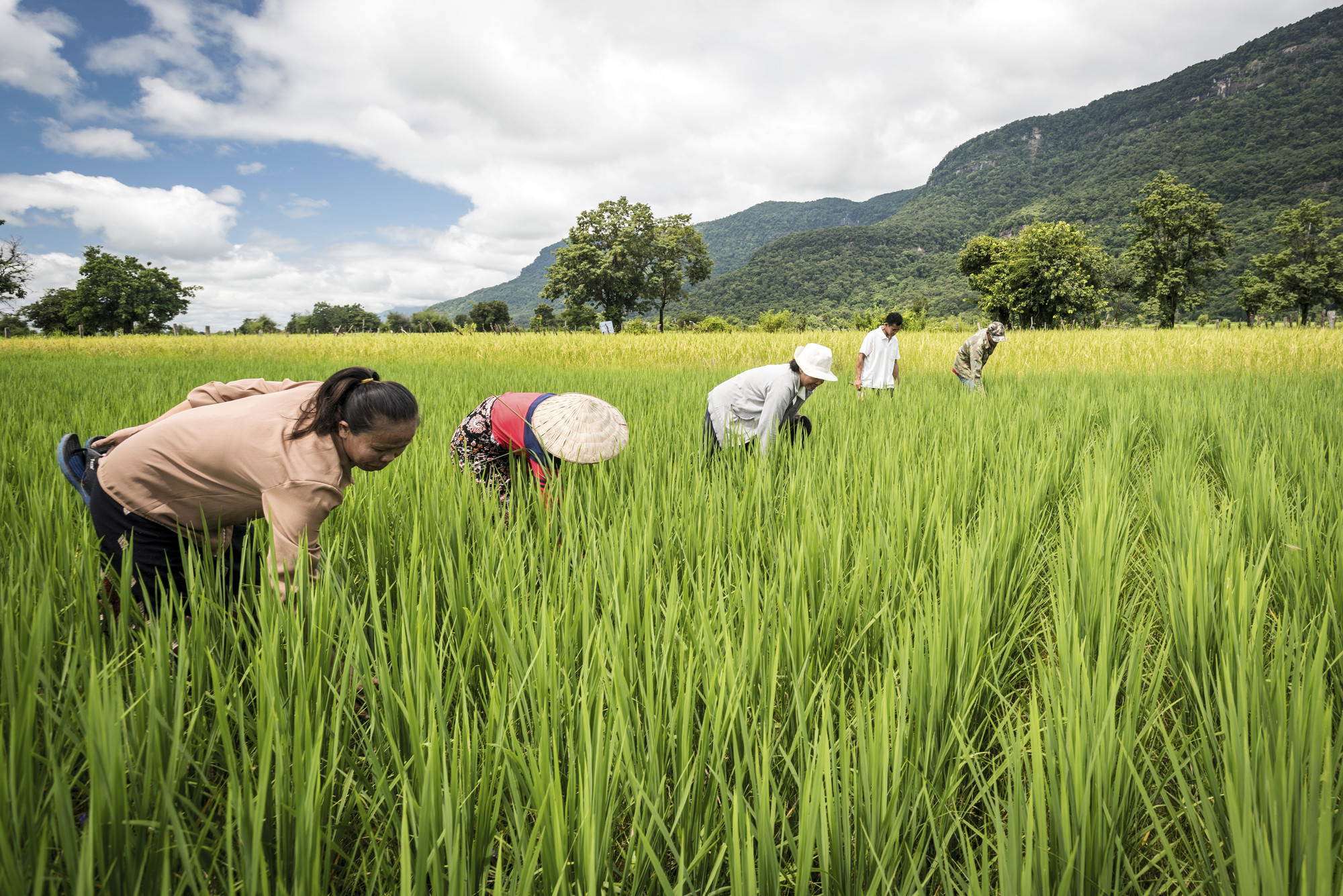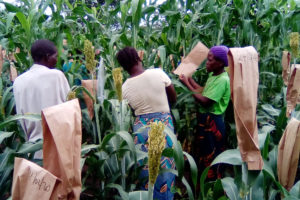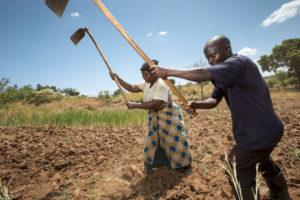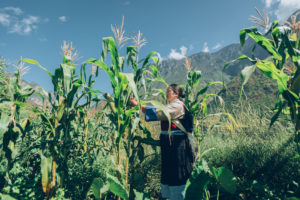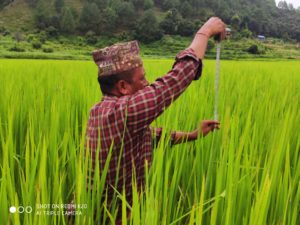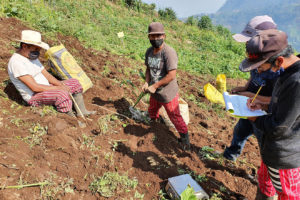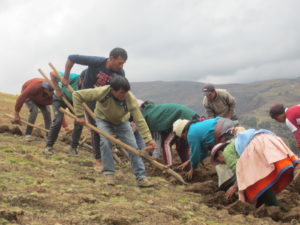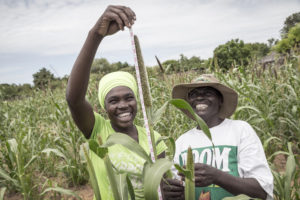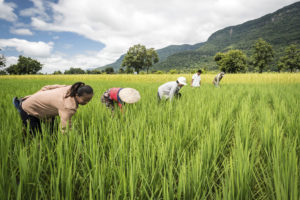Lao PDR has among the widest diversity of indigenous rice varieties in the world. Most farmers produce rice primarily for home consumption rather than sale, using seeds they produced themselves rather than bought.
The diversity of varieties enables farmers to choose based on their taste and their soil type, steepness of slope and micro-climate. It also enhances their resilience to changing conditions. An estimated 30% of rice grown in paddy fields in the valleys now consists of improved varieties developed by NAFRI, the country’s main rice breeding institution.
Farmers have faced relatively little competition from imports – or opportunity to export – as the staple food is glutinous rice, while most of the rest of the world prefers non-glutinous rice. There is, however, a potential threat of foreign seed companies claiming patents on Lao rice varieties. The country is currently developing new laws and policies on the seed sector.
The people we work with
Most farms are run by a husband and wife working together, but men have more decision-making power in the household and women are less likely to speak up or take leadership roles in the community. Women, however, traditionally choose which seed to keep for the next season – their experience is especially critical for the ability to adapt to climate change.
The project aims to create 150 Farmer Field Schools with 4,000 farmer members, of which 70% will be women. Also, 20% will be youth, who are migrating to cities in search of other employment opportunities. An estimated 144,000 people will benefit indirectly.
What we do
The project works in Oudomxay, Xayabouly, Vientiane, Saravane, Attapeu, Xiengkhouang and Louangprabang provinces, on rice, maize, several vegetable and bean crops. We also develop awareness-raising tools and materials to improve understanding on how to grow underutilized local crops in gardens and incorporate them optimally in a nutritionally balanced diet.
We run an interactive, farmer-to-farmer training program for Farmer Field Schools on management of plant genetic resources, to enhance farmers’ abilities to use a mix of varieties to reduce risks of climate change. The project will establish at least five farmer seed banks. We work with youth groups to engage them in opportunities in the agriculture sector.
Our partners inform farmer groups of issues coming up in the process of developing new laws and policies, and help them to formulate their responses and get their voices heard.
About NAFRI
The National Agriculture and Forestry Research Institute of Laos was established in 1999 in order to consolidate agriculture and forestry research activities within the country and develop a coordinated National Agriculture and Forestry Research System. NAFRI belongs to the Ministry of Agriculture and Forestry (MAF).
NAFRI is mandated to undertake integrated agriculture, forestry and fisheries research in order to provide technical information, norms and results which help to formulate strategy in accordance with the government policies. NAFRI has four main functions including: carrying out adaptive research, developing methods, tools and information packages, providing policy feedback, and coordinating and managing research

